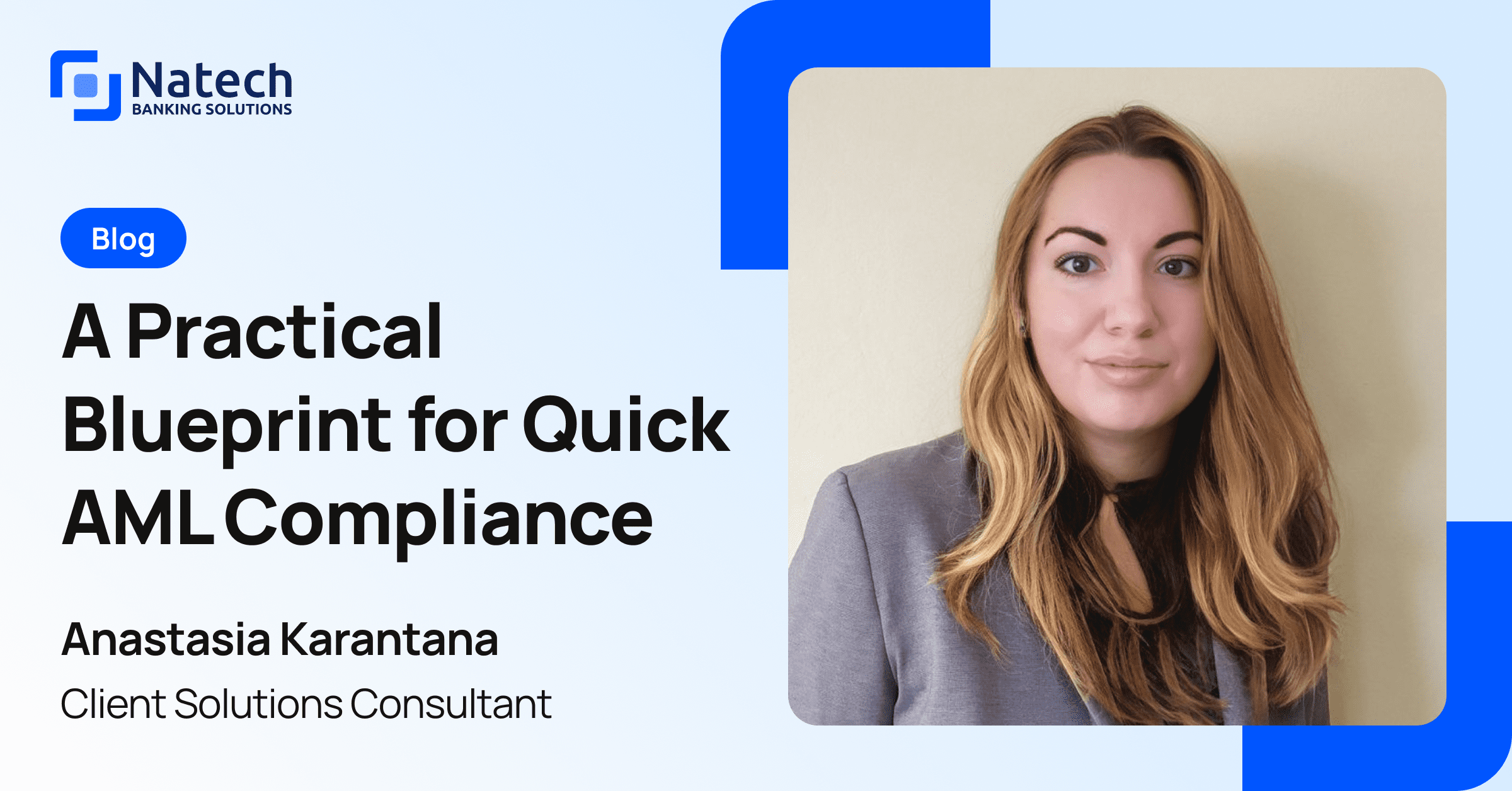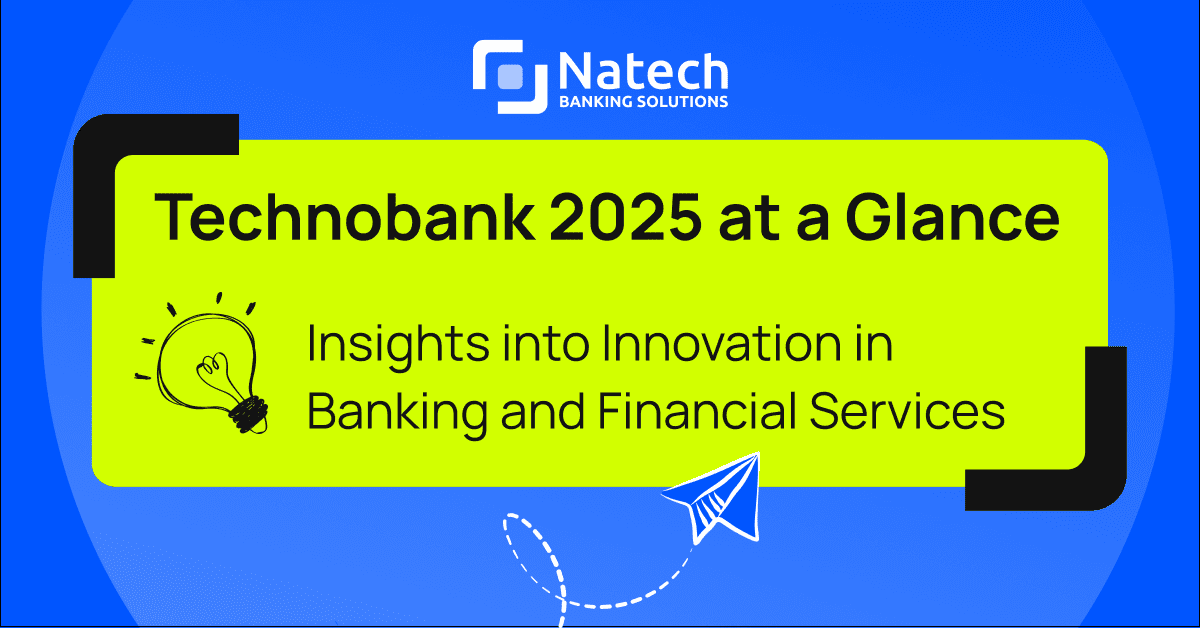Navigating Emerging AML Regulations in Southern Europe
From 6AMLD enforcement to the rise of AMLA, financial institutions—banks and non-banks alike—must prepare for tighter scrutiny and multi-jurisdictional demands. In this blog, Natech's PreSales Director, Fanis Mesolongitis, outlines what’s changing, who’s at risk, and how modular AML technology can future-proof compliance.

By Fanis Mesolongitis, PreSales Director at Natech
Southern Europe is entering a new phase of regulatory enforcement—and financial institutions across Greece, Italy, Cyprus, and the Balkans are finding themselves in the spotlight. The message from regulators is firm: compliance can no longer lag innovation.
For regional and cooperative banks, fintechs, and many businesses involved in financial transactions, the coming year will demand sharper visibility, faster reporting, and airtight audit trails. At Natech, we work with dozens of financial institutions across this region and we’re seeing the same concern echoed again and again:
“How do we stay ahead of AML requirements before they become fines?”
The AML Landscape Is Tightening
Here’s what’s driving the shift:
The EU’s 6th Anti-Money Laundering Directive (6AMLD) is now fully transposed into national laws across most of Southern Europe, expanding criminal liability to senior executives and requiring harmonized sanctioning frameworks.
The upcoming Anti-Money Laundering Authority (AMLA), to be headquartered in Frankfurt, will bring centralized enforcement by 2026. Southern Europe—often under scrutiny for high-risk exposure—will be a priority focus.
Cross-border compliance is no longer optional. With digital financial services operating beyond national borders, regulators expect institutions to manage multi-jurisdictional exposure proactively.
The European Banking Authority (EBA) has stressed the importance of proactive AML governance. In its latest Risk Assessment Report, the EBA emphasized that banks across the EU must strengthen internal controls to address financial crime vulnerabilities and adapt to increasing regulatory complexity—especially amid geopolitical instability and rising digital transaction volumes (EBA, 2024).
Why Smaller Banks and Non-Bank Institutions Are at Higher Risk
While large financial institutions may have compliance teams, in-house legal counsel, and custom-built tools to navigate AML demands, many smaller banks and non-bank financial institutions face an uneven playing field.
Whether you’re a cooperative bank, a crowdfunding platform, an EMI, or a payment service provider, you may be dealing with:
❗ Legacy or homegrown AML tools not designed for today’s regulatory complexity
❗ Manual processes that slow down investigations and inflate compliance costs
❗ Fragmented data systems across transaction types, customers, and regions
These gaps don’t just increase operational burden—they expose institutions to significant regulatory and reputational risk.
According to LexisNexis Risk Solutions, AML compliance costs continue to rise fastest among firms in emerging and mid-sized markets, where data silos and underinvestment in automation are most common. These institutions report inefficiencies in case file processing, poor audit readiness, and difficulty adapting to new regulatory obligations, particularly under AMLD6 (LexisNexis, 2023).
As new sectors—from crowdfunding to NPL servicing—come under the scope of EU AML directives, the need for affordable, and regulator-ready solutions has never been more urgent.
Modern AML for a Fragmented Region
Southern Europe presents a unique challenge: a patchwork of national regulators, varying enforcement priorities, and rapidly expanding AML obligations across both traditional and non-traditional financial entities.
From small banks in rural markets to fast-growing fintechs, institutions across the region face a common issue—outdated AML systems that can’t adapt to evolving laws or handle increasing transaction complexity.
At Natech, we understand the regional nuances—because we were born here. Our AML platform is designed for:
- Full alignment with Greek AML regulations and Hellenic FIU standards
- Adherence to Italian GdF and UIF reporting rules
- Adaptation to country-specific reporting rules
- Support for CySEC, CBC, and cross-border reporting
- Multi-country coverage with unified dashboards and local-language SAR templates
Whether you’re a cooperative bank in Epirus or a digital lender in Milan, Natech’s cloud-native AML suite allows you to:
- Detect high-risk activity in real-time
- Auto-generate jurisdiction-specific SARs
- Adapt to regulation changes with minimal IT intervention
Most of our clients go live in as little as 2 weeks and report a 35% reduction in operating costs within months of deployment.
What’s Next: 3 Steps to Prepare
- Conduct a regulation-mapping review – Ensure your internal rulebook reflects the latest 6AMLD mandates, sanctions lists, and risk classification models.
- Automate audit trail generation – Regulators increasingly request not just data—but decisions behind the data. Automation is key.
- Localize your AML system – Generic tools don’t cut it. Institutions need compliance platforms that speak their language—literally and legally.
Why Natech Is Uniquely Positioned
With over 20 years of experience supporting banks in Southern Europe, Natech brings:
- A straightforward, rules-based, plug-and-play AML platform
- Regulatory alignment across borders in Southern Europe and beyond
- Local-language support and compliance updates
- A track record of 100% customer retention
Our clients, like Cooperative Bank of Karditsa and Snappi, trust Natech not just to meet regulatory requirements—but to anticipate them.
Download our AML Brochure to see how we help institutions across Southern Europe stay compliant and resilient.
Or request a demo and speak with our regional compliance experts.












